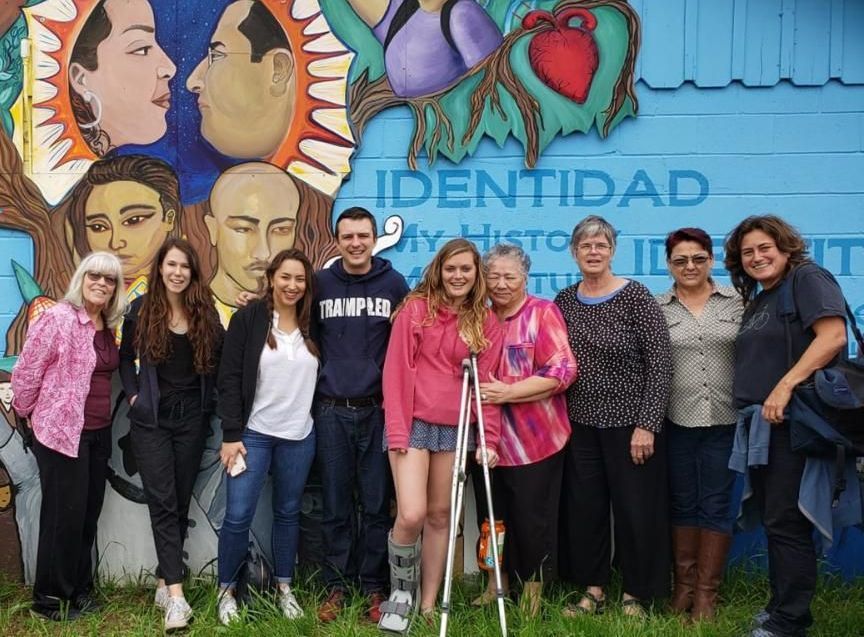
Austin, Texas, is located 225 miles from the US/Mexico border. That might not seem “so close,” but grantee Austin Tan Cerca de la Frontera (Austin So Close to the Border) devotes itself to reducing the distance.
The organization’s mission is to spread awareness about the unjust impacts of free trade agreements on workers, which it does by hosting an annual fair trade festival and taking delegations to visit maquiladora[1] communities close to the border. Although its activities might seem modest, Austin Tan Cerca de la Frontera has a profound impact on participants’ understandings of their place in a global political and economic context, which draws people from both sides of the border closer together.
Austin Tan Cerca de la Frontera is 20 years old as of this year. In 1999, there were protests in Austin against the relocation of factories to Mexico. At one of these protests, two Mexican women spoke to U.S. workers about their experiences working in maquiladoras. Some in the audience didn’t believe the women’s stories, and so decided to go on a “fact-checking mission” to Mexico to see the situation for themselves. This was the first delegation of many more to come.
As word spread, more and more people became interested in getting a first-hand glimpse at the realities of production under free trade. In order to meet this demand, Austin Tan Cerca de la Frontera partnered with the Mexican group CFO (Border Committee of Women Workers) to host and arrange the delegations’ visits. During the visits, delegates meet with women in their homes and communities and tour their workplaces. Workers share stories of the struggles they undergo in a harsh labor environment, as well as strategies they use to defend their human rights and dignity.
“A lot of times the stories that you hear are very difficult, but what’s so interesting is … meeting the women, seeing how resilient they are,” says Laura Hoyos, Austin Tan Cerca de la Frontera’s education coordinator. Josefina Castillo, the board’s chair, agrees: “[The women] don’t see themselves as victims … in the middle of the hardships that they go through they also are able to celebrate.” The visits often challenge participants’ preconceptions about maquiladora life, which is why organizers encourage visitors to come with “manos vacias” (empty hands). As Laura explains the concept, delegates don’t go in order “to give and to impose our views and our ideas because we’re coming from the U.S. … We’re just here to listen.” “It’s a learning experience,” Josefina adds. “[We’re not] teaching them what to do, [we’re] learning ourselves.”
Traveling to Mexico, however, isn’t the only way to learn about the working conditions at maquiladoras or the exploitative consequences of free trade on communities around the world. Another is the Women and Fair Trade Festival that Austin Tan Cerca de la Frontera hosts each year. The festival began as a result of connections Austin Tan Cerca de la Frontera had with a local art gallery that was hosting indigenous women artists, Guatemalan weavers, and a Palestinian store. “We were looking to offer alternatives,” says Josefina, “to provide ways that people could get involved … beyond just going to protests.”
The festival is meant to be a celebration of traditional cultures and international collaboration as well as a place to resist hegemonic understandings of production and economy. It’s both a chance to have some fun and an opportunity for customers to reflect on the origins of the products they buy every day. As Laura puts it, “it’s very easy to get wrapped up in our personal lives and not think about the things that we consume … where they come from and who made them. Is that person being treated fairly in their workplace? Are they being paid fairly for the product you’re utilizing?” As Austin Tan Cerca de la Fontera reminds us, the answers to these questions may be closer than we think.
[1] Maquiladoras are predominantly U.S.-owned factories located just south of the Mexican border.
